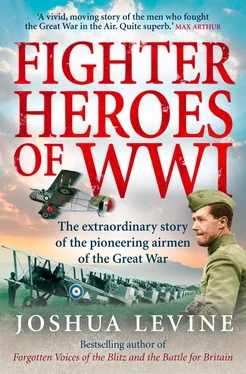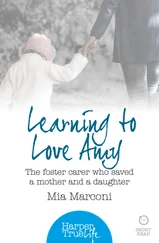At the beginning of the war, a man with specialist knowledge was a welcome addition to the flying services. William Richards, self-taught and highly motivated, was such a man:
My father and my mother emigrated separately in the eighties, around 1884. My father was from Cornwall, at a time when the Cornish tin mines were in difficulty and closing down. And people concerned with that sort of work, at that time, were emigrating. At the age of twenty-one, he went to New Zealand. My mother’s was an agricultural family in Essex. When she was about fourteen, they moved to New Zealand. She was that much younger than my father.
They met at Dougville, eight or nine years after arrival in New Zealand, and they fell in love, married, and there’s no doubt about it, it was a very happy and romantic marriage. She was a lovely person. I was born a year after their marriage on St George’s Day in 1893. They’d set up home in Auckland, in Queen Street, at that time, scarcely developed. They set up home in a kind of colonial style, and there’s no question that they were very happy. I have the photographs of myself as a baby, and they go to show that’s what it was – a happy home.
My mother contracted some sort of tropical fever at the age of twenty-five, and when I was a year and ten months old, she was taken from us, leaving my father with me, more or less in arms, to cope with a tragic situation. Friends came to his help, and I was looked after for a time, but it was quite clear to him that he couldn’t carry on. It so happened that a relative in Cornwall had lost her first baby, and been told that she couldn’t have another, and she, knowing my father’s predicament, wrote to him, suggesting that if he cared to bring me to England, she would take care of me.
So she became, in a way, my foster mother. We lived on a farm, very isolated. I had no contact with any other children excepting when I later went to a village school at St Neot. So I was mixing very freely with grown-ups, all of them occupied in agricultural work. My only playmate, as a matter of fact, was a sporting dog. And I became rather self contained, independent, perhaps a little bit difficult, being alone in that way. I developed into rather an interesting child, in that I insisted that I would set my own way of life, and form my own ideas. I had quite strong ideas as a child. When I reached the age of ten, the dear lady who had been looking after me decided to go to America with her husband, and my father felt it necessary that a home should be provided for me, so he decided to marry. And he did. He just married, not for any romantic reason. Just to make a home.
I was independent minded and I refused to accept my stepmother. And it wasn’t long before, on the excuse of going to spend a holiday with some friends in another part of Cornwall, I left home and refused to return. And from then on, I continued from one thing to another, living in different places, lodging with different persons, being employed in different things. I worked in the tin mines, and because I’d developed an interest in machinery, I was given some responsibility, even at a very young age. I was looking after power equipment, and doing survey work along the valleys for tin.
In the meantime, I took an interest in politics. At the age of eighteen, I stood with Isaac Foot, the father of Michael Foot, on his platform in Bolventor. I wrote letters for people in the farms who were scarcely literate. I had educated myself entirely – I was never coached, assisted or guided. I don’t think I was helped at any time. I just pursued my own way. I was good tempered, bright, inquisitive and well inclined to learn anything and everything from observation and experience. I gained a lot of experience.
It started to appear to me that I had a purpose in life. I was at that age, in my later teens, when a teenager develops this disposition. And I thought that my purpose could well be served if I were to adopt a religious career. I came under the influence of a book that was published at that time by the minister of the City Temple, Archie Campbell, The New Theology , which suited my ideas of religion. I was old enough to draw certain conclusions about the difference between fundamental religion, evangelical religion, and the more liberal attitude to religious dogma and doctrine. In that connection, I spoke in public on many occasions. And the local stewards of the Church nominated me for the ministry.
I accepted the nomination and acted on it. I went to London, where I was examined by a committee with the purpose of going to theological college, but I was turned down because my self-education had only equipped me for certain things. For example, they asked what books I had read. I couldn’t answer. I just hadn’t had books, the classics, and that kind of thing. I was just so completely self-educated, in a rag-tag fashion, quite uncontrolled, without direction. The committee put me back for a year, as a result of my inability to quote Shakespeare. My attitude of mind was, whilst religious to a degree, critical of a number of things that I could not accept, and I decided that my future would be secular and not religious. I turned immediately to earning my living in a commercial or engineering way, and dropped any idea of pursuing a religious life.
So I went to London with £5 in my pocket, knowing nothing more than that the streets of London were paved with gold, and my future was what I could make of it. I booked in at the YMCA in Tottenham Court Road, and within twenty-four hours I had a job at the London County Council as a temporary assistant.
By then, I had studied electricity and magnetism in books, and I’d given myself a fairly good grounding. And at the time, the big trans-continental wireless stations, Poldhu, Eiffel Tower and Nauen, were operating, and it was possible with a simple piece of apparatus – a crystal and a pair of headphones – to pick up those signals, and if you knew Morse code, you could read what they were saying. So I learnt the Morse code, and followed these transmissions as a kind of hobby. And in that way, wireless became my forte.
At the outbreak of war, I was fired with the idea, and I walked into a recruiting station and offered myself. They examined me as to who I was, and what I could do, and it came out that I knew Morse, and I was booked as one of the very, very few wireless operators for the Royal Flying Corps. One thing followed another. I was sent to study under Professor Price at the London Polytechnic for two months, and then I was handed a New Testament, a revolver, and I was told to proceed to 4 Squadron in France.
Archibald James began the war as a well-connected young subaltern in the 3rd Hussars:
My primary recollection of the first winter of the war is of mud, Flanders clay, our wretched horses standing on long picket lines, hock-deep in mud, misery, living on bully beef and biscuit, and great discomfort. We were employed as dismounted cavalry to take over trench lines, usually for a short time before infantry became available. The British front had been extended to the north. And the line in the north of Flanders was held mainly by old French Territorials. The trenches were very sketchy. And we were quite ill-adapted to this sort of work and quite unsuitably clothed for it, as indeed, at that stage of the war, were the infantry for trench warfare.
The worst episode of this period was three miserable days when we stood to in the afternoon, then rode about ten miles. On the way it came on to pour with rain. And by the time we got to about a mile and a half from the trenches we were to take over, we were all absolutely soaked to the skin. My trench was an isolated length, with no idea how far away the German trenches were. In the night, it stopped raining and started to freeze hard. We had three days in these wretched little trenches, frozen miserable. And we had the greatest difficulty getting rations up because, from one flank, the Germans overlooked our rear. And when we got back to billets after three nights in these trenches, we had without exception what became known as trench feet. We had one-third of the regiment out of action for a week while their wretched feet thawed out. My feet were throbbing with pain for at least a week.
Читать дальше












